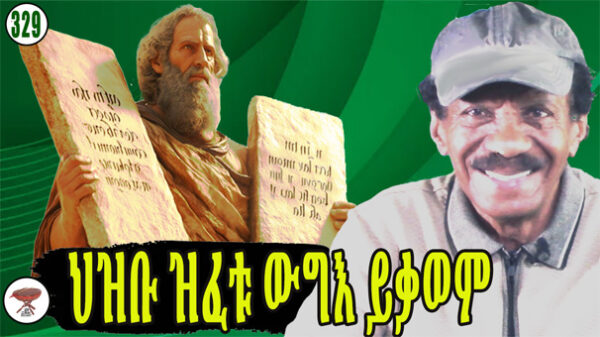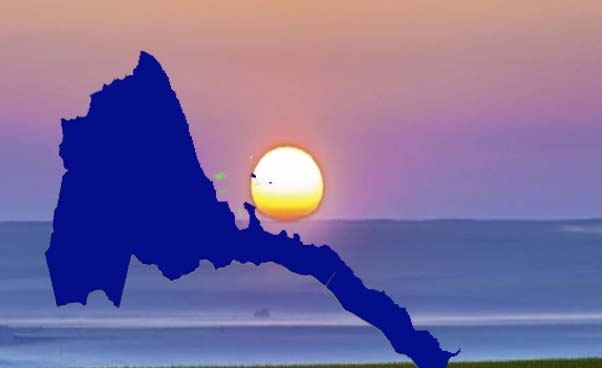Isaias: Too Strange to Captain Our Ship of State

Shore but only a kilometer away,
Shoes new, untraveled, for a new day,
Fire on deck, 60-foot of God’s acre.
Black dots, tearless eyes,
Slippery arms, sudden goodbyes,
Took wing soaked in water.
Tides, tides, tides,
tiny dots in tiny crates,
Tears now to tide us over.
Your ethics professor is an atheist. He is describing the problem of evil, the suffering of the innocent and he tells a story of a little girl trapped in a well. There is a salvation campaign, the whole village is mobilized, the rescue mission goes on for 3 days. But she dies: hungry, afraid, in tears, calling for her mom. The Professor says, “if I were the little girl’s mom, the first thing I would do when I see God is to spit in His eyes.” You were shocked then; now twenty years later, you think of him as you see four little coffins with teddy bears.
The problem with you Eritreans is that you are not Japanese. Or Libyans. Or Pakistanis. Or Kenyans. Because all those people, in their hours of grief, got a letter from Isaias Afwerki, “on behalf of the government and people of Eritrea” expressing his condolence. The Japanese didn’t just get a condolence letter expressing his “great shock and deep sorrow” in 2011, but also $50,000 USD. (Japan’s GDP: 6 trillion USD.) When the Libyans had a plane crash in 2011, Isaias Afwerki expressed “deep sorrow” for Libya’s loss. (casualty: 100 persons.) When Kenyans were hit by Al Shabab just last month, they got a condolence message (casualty: 68.)
But here you have potentially 350 Eritreans killed and Isaias Afwerki cannot be bothered to express any human feelings. It is even worse: the world will be sending him messages of condolences, and he will not have it publicized in any of his media outlets. You are a nuisance, always demanding: air, water, freedom, compassion, humanity. Give me, give me, give me.
Haben, QurAt, TiEbit, BdE. It is all the same to him. His meter has long registered a permanent state of arrogance and his natural reaction to the humble (“weak” in his mind) is to scorn, to humiliate and degrade. Derision is his first reaction. A bully mocks the weak and only respects and leaves alone those who bloody his nose.
How much scorn? Most of the Eritreans who perished are young and therefore, statistically speaking, they are part of the Agelglot—the so-called “national service,” the compulsory military service without a deadline. Many, therefore, have bled for Eritrea and they have saluted the Eritrean flag, and fell for it. Now, an Italian flag, a foreign flag, flies at half-mast to mark their death, while the one they fell for is indifferent and waves in full mast. That kind of scorn. So, to make Selam Kidane’s observation– “the fathers (and mothers) died liberating the country… the children are dying running away from it… the irony… the tragedy… the absurd reality of being Eritrean”– even more ironic, more surreal, the youth took a bullet, some nearly died, for the country that is now pretending they never lived.
The pope, a great man, said it is shameful for the world to be indifferent to the plight of refugees. If the world is to be ashamed, what must the cause of all this suffering feel if he was a normal human being? Be distraught? Depressed? Feel a sense of failure? Contemplate resignation? Contemplate suicide? But is he a normal human being?
You don’t even want to peer into his head, but you must. There are two parts to his “thinking.” First part: the CIA and the UN are actively engaged in a campaign to empty Eritrea of its youth. He has evidence. He said so on videotape and one of his admirers was kind enough to edit it into a listenable short piece.
[youtube]http://www.youtube.com/watch?v=CYFHIp27Mvw[/youtube]
Thus, this is war which takes us to the second part: Eritreans who have succumbed to this campaign to empty Eritrea out of its youth and make it defenseless are, by definition, weak. In his eyes, they are deserters. And they must not be spoken of. If you must force him to speak of them, he will tell you they are on a picnic. If the youth themselves ask him, as Eritrean university students did in July 2002 (by the way, that was before Langley’s campaign against Eritrea, in case you are keeping track) what policy changes will he make to avoid brain drain, he will tell them “When I was leaving Asmara to come here, they told me, lest you vanish, to meet with you and advise you to come back home. I told them, “let them try!” Globalization is Equalizer. If there is money, there is no problem. You can import people. In the past, we looked for and couldn’t find laborers and construction workers. We imported them from Sri Lanka, the Philippines and India. Yesterday, we were looking for five architects and we brought them from the Philippines. If we cannot find a professor, we go to India and import him. So, if one says “I want to go to America,” let him try it.”
But, you say, the director of the presidential office (Yemane Gebremeskel) expressed his sorrow to a friendly website. And, you say, the Foreign Minister (Osman Saleh) expressed his condolences to the families.
Well, yes. And, no doubt, some ambassador somewhere will express his remorse on twitter (I am betting on the ambassador to South Africa) and another on Facebook. But these are all freelancing behind the back of Isaias Afwerki (he is not a big fan of social media or, sadly for the “house negro” websites, he doesn’t read his cheer leading websites.) That’s why the communications are small and indirect (never on audio, video, or influential media.)
What about the “We Are All Isaias Afwerki” (WEAIA) club floating different balloons to see which one flies higher? Test 1: The victims are not Eritreans, they are probably Ethiopians masquerading as Eritreans. Test 2: Fine, they are Eritreans but they are not as many as you claim. Test 3: Ok, ok, they are Eritreans and it is tragic, but the government is blameless, stop exploiting the tragedy. You worked with them for a while over a decade ago and you can say with absolute certainty that they are not repeating some directive from high on up. That implies institutionalism, and organization, and there is none in Eritrea. There is none. It. Is. A. One. Man. Show. It is a beanstalk organizational chart. The WEAIA are looking for a directive, a memrHi, and none has come from Isaias Afwerki yet, so everybody is freelancing. He, conversely, is waiting… just waiting for you to forget. You did forget, after all, a boat which capsized in Lampedusa with 200 Eritreans and Somalis in 2011, didn’t you?
An Eritrean youth group is demanding that the bodies of the Eritreans be interned to Eritrea. They should, they may, they probably will. And that will help the families, somehow, to know of their children’s resting place. But there is another question: will their families be allowed to grieve for them in Eritrea by building the traditional mourning tent? Do the math: if it is 300 Eritreans, and knowing how close-knit Eritrean families are, that is 30,000 Eritreans grieving. And talking. At the same time. That cannot be allowed. Even if it is 100, that is 10,000 grieving, wailing, talking, cursing families. So the tents won’t be built; it will be hushed cries. To cry loudly is to celebrate the life of a deserter to what we call the EDF but what Isaias Afwerki considers his militia. This is clearly an affront to Isaias Afwerki.
And the media? It shall be back to quietude. Remember, the Eri-TV news coverage about “illegal African immigrants” who are said to be “citizens of Horn of Africa” (just so they won’t mention Eritreans) that you were ridiculing?
[youtube]http://youtu.be/b4nL27OWQmg[/youtube]
That got coverage because it was foreign news. Now that it is domestic news, that cannot be allowed. It didn’t happen. Why, you ask. Because, you have it wrong again: it is not just that Eritreans don’t have freedom of speech; they do not even have freedom of hearing. To hear is to be aware; to be aware may give way to act. That is a risk Isaias Afwerki cannot take.
The New York Times Jeffrey Gettleman is its Africa correspondent. Last month, he interviewed Rwanda’s Paul Kagame, who is created from the same mold that Isaias Afwerki is. Kagame is so insecure about educated people, that even when they would write a speech for him, they had to say things like (a direct quote), “You are the president, and in my hands it is a stupid peasant document. But in your hands, it is something special.” His exiled former colleagues, some of whom survived assassination attempts in South Africa and UK, say that he used to physically beat them. The journalist confronts Kagame with this and Kagame says, “God created me in a very strange way.” Notice the deflection: it is not “I am very strange” but “God created me in a very strange way.”
Kagame, the darling of the West (the article is entitled “The Global Elite’s Favorite Strongman”), no doubt, will be praised for his bluntness: few in the West will say, my God, an admittedly very strange man is presiding over a state with 11 million souls. That is the way of the West. Bringing it home: Notwithstanding everything we know about him in the past 20 years, his actions and inaction this week alone show that Isaias Afwerki is a very strange man. Some, regretfully too many of them, will see in this an admirable man not swayed by sentimentalism—the tough love disciplinarian dad model they seem to crave—but some, hopefully in increasing numbers, will see that this man is too strange to captain the State. If the Eritreans who just perished in Lampedusa are not to die in vain, we must begin with this acknowledgement: Isaias Afwerki is too strange to lead the decent people of Eritrea.
saay
10/6/13




Awate Forum